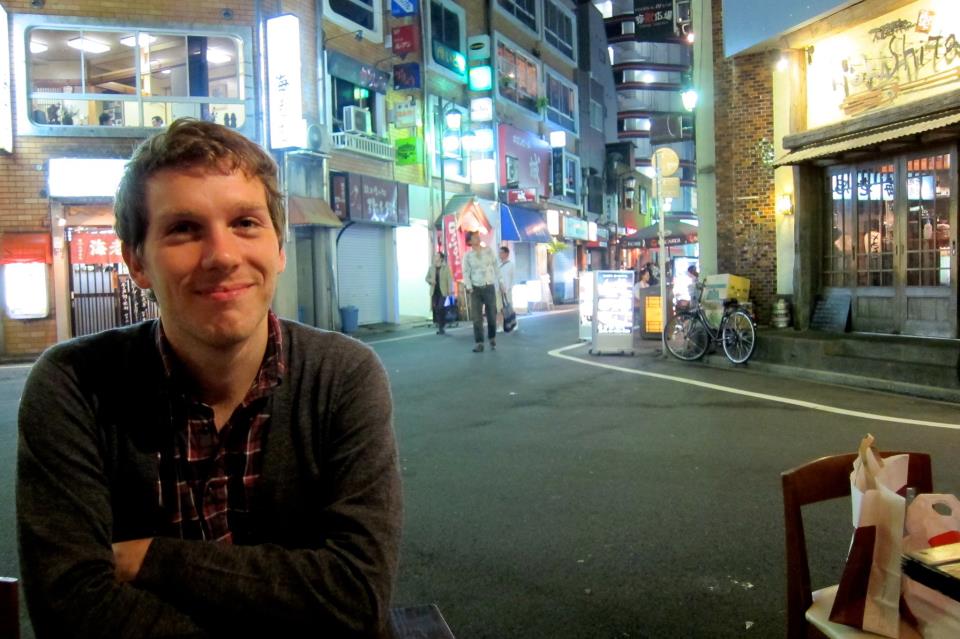Hello everyone! My name is Eric, and I’m just beginning my Japanese language experience here in Tokyo. I just took my first three lessons on Living Language Platinum Japanese, and I’m ready to go out there and try out the language for myself. I have been living in Japan for four months now, but with very minimal Japanese language skills. As a “language person,” I have to admit I often feel a bit embarrassed when I hit a language barrier, so I am determined to become fluent in Japanese as soon as I can.
Having just started formally learning Japanese, let’s start from the beginning! When I first arrived here in August, I was a bit confused by the different ways people say hello and goodbye in Japanese, and it turns out Japanese has subtle differences in usage based on the time of day or even the relationship you may have with the person who greets you (for example, in a customer service situation). First, there’s ohaiyou gozaimasu (good morning), konnichiwa (hello/good afternoon), and konbanwa (good evening) for greeting people at different times of day. I’m still a bit unclear about when people actually start saying konbanwa, though. There doesn’t seem to be a clear rule about this (at least in my experience), but this could be something worth investigating.
If you’re seeing someone you haven’t seen in a while, you can say hisashiburi desu ne! (long time no see!). Generally, I’ve heard people drop the desu ne and just say hisashiburi in more casual situations.
One thing that really threw me off at first was that whenever I’ve walked into a restaurant, café, bar, or any sort of shop, all of the staff would shout in unison irrashaimase! The first time I heard this I just thought, “uhhhh hi?”, but I’ve since learned that this is a formulaic expression that service staff will say to greet customers. It roughly means “Welcome!” and when you leave the shop, the staff shouts again in unison arigatou gozaimasu! (thank you very much!). It’s a bit jarring at first, but after a while, I got used to this. Now I’ve really started to notice when shop staff don’t use these expressions!
For saying goodbye, there is, of course, sayounara. I’ve been told that this is really only used as a form of “farewell” when you are really saying “goodbye” to someone for the long-term. I’ve also heard the more casual, mata ne, ja ne, or ja mata (see you later), which are more liberally thrown around in everyday conversation than sayounara.
Well, that’s it for my first post. Stay tuned for more updates as I learn Japanese with Living Language and put it to use in Tokyo! Mata ne!
